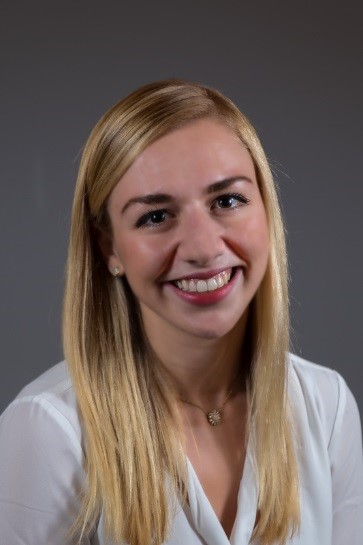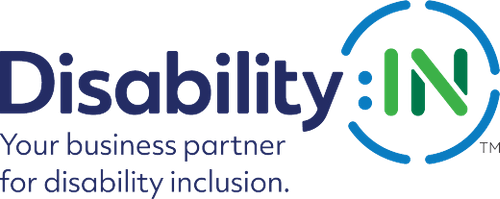“Our company was able to connect with high potential talent like Ally”
WRP Experience Enables Self-Identification And A New Career Path
USBLN highlights various young leaders with disabilities in the Rising Leader Spotlight Series. If you are a corporate partner (or potential partner), and would like more information our USBLN’s Rising Leaders, please contact Liz (liz@usbln.org). If you are a young leader with a disability, and would like more information on the Rising Leadership Mentoring Program or the Rising Leadership Academy, please contact Keri (keri@usbln.org).
The number of students with disabilities attending higher education in the United States now represents 6% of the student body. As with any graduate, their professional success will stem from a number of things, including work ethic, opportunity, and, for some, having a mentor to guide them.
Quality mentoring relationships have a powerful effect on young people in a variety of situations – personally, academically and professionally. Initiatives like the USBLN Rising Leaders Mentoring Program were created to further those opportunities. This six-month career mentoring strategy brings together employers with college students with disabilities and recent graduates with disabilities in a mutually beneficial way. Through the USBLN’s association with over 130 corporate partners, we match at least 70 individuals to business professionals in their field of study, area of interest, and to whom they would not otherwise have access. The Rising Leaders Mentoring Program connects students like Ally Chisenhall to experts that can provide professional growth and development, and social and economic opportunities.
 In the fall of 2014, Allison ”Ally” Chisenhall, a Chemical and Biomolecular Engineering major at John Hopkins University, received an announcement from the Office of Student Disability Services regarding the Workforce Recruitment Program (WRP). The program was the first she had uncovered that offered internship opportunities specifically to students with disabilities. She saw that as a unique opportunity, and decided to apply. Up to that point, Ally had secured the qualification she needed for academic success, but was unsure of when to identify as a person with a disability in other situations. The WRP provided her the first opportunity to self-identify as a job seeker with a disability.
In the fall of 2014, Allison ”Ally” Chisenhall, a Chemical and Biomolecular Engineering major at John Hopkins University, received an announcement from the Office of Student Disability Services regarding the Workforce Recruitment Program (WRP). The program was the first she had uncovered that offered internship opportunities specifically to students with disabilities. She saw that as a unique opportunity, and decided to apply. Up to that point, Ally had secured the qualification she needed for academic success, but was unsure of when to identify as a person with a disability in other situations. The WRP provided her the first opportunity to self-identify as a job seeker with a disability.
Ally received several internship offers through the WRP, and ultimately decided to take an internship with the National Cancer Institute at the National Institutes of Health (NIH) in their Mammary Stem Cell Biology Lab. She also accepted an invitation to become part of the US Business Leadership Network’s (USBLN) Rising Leaders Mentoring Program (RLMP), which matched her with a mentor from a partner company.
Based on her experience during her summer research internship at NIH, Ally realized she did not want to pursue a research career in biomedicine. Through guidance and advice from her mentor, Ally switched from the bio-engineering career track to one in process engineering.
To further explore career opportunities, Ally applied to participate in the USBLN’s Rising Leadership Academy at the USBLN 2015 Annual Conference in Austin, Texas. During the course of the five days in Austin, Ally met a community of individuals with a variety of disabilities, and her comfort level as a person with a disability grew. She was able to network with key company representatives, including Jason Bryn, former Disability Compliance and Inclusion Programs Manager in BAE System’s Workforce Analytics and Compliance Division. Through Jason, she learned of an opening at BAE Systems. In the spring of 2016, Ally started her new chemical engineer position at BAE Systems.
Ally’s story is a true win-win, both for her and BAE Systems. She is engaged in company activities, such as BAE Systems’ disability employee resource group, which enhance the company’s opportunities to attract top talent who also happen to have disabilities. “Attending USBLN’s national conference and participating in USBLN’s Mentor Program as a corporate disability partner has connected our company with high potential WRP talent like Ally and positioned BAE Systems as an employer of choice for candidates with disabilities,” says Jason Bryn. Much like the resource group with which Ally is engaged, the USBLN’s ERG/BRG Leadership Committee provides opportunities to stay connected.
The USBLN Rising Leaders Mentoring Program is designed to support students and recent graduates as they navigate the professional world, and answer unique questions that relate to being a person with a disability in the workforce. Visit usbln.org for more information about Rising Leaders Mentoring Program, and the Rising Leaders Academy at the 2018 USBLN Conference.
Rising Leaders Spotlight Series: Bryan Stromer
While Bryan believes most major companies recognize the importance of diversity in the workplace, he feels actively investing in programs such as the Rising Leader Academy underscores the commitment to diversity and inclusion.
Rising Leaders Spotlight Series: Paul Trevino
The Rising Leaders Mentoring Program connects students like Paul Trevino to experts that can provide professional growth and development, and social and economic opportunities.
Rising Leaders Spotlight Series: Hannah Chadwick
Hannah recently accepted a position as Program Coordinator for the USBLN, where she gets to work on a number of projects. As a Rising Leader alum, Hannah’s assistance with the Rising Leaders Initiatives will be invaluable.
“Any employer would value a combat war veteran”
LeAndre Yarrell is a retired United States Army Sargent who served in Afghanistan. LeAndre’s career plan is based on setting goals for himself, and acquiring the professional skills, experience, and accomplishments that will lead him to the C-Suite level.
“Disability helps me with problem-solving strategies”
Ray Parker believes the USBLN and the Rising Leadership Academy were invaluable assets for him as a student with a disability transitioning into a working professional.
